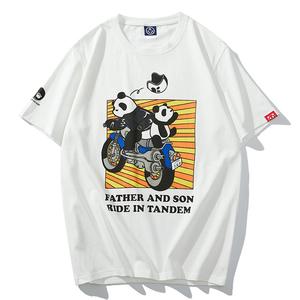Selecting clothing fabrics with good wrinkle resistance is essential to extend the service life of clothing, maintain a neat appearance, and enhance the wearing experience. The following are factors that should be considered when purchasing clothing fabrics with good wrinkle resistance:
1. Natural fiber fabrics: Natural fiber fabrics such as cotton, linen and silk Usually has better anti-wrinkle properties. Among them, pure cotton fabrics are soft and comfortable, but are relatively easy to wrinkle; while linen fabrics, due to their natural fiber structure, have large fiber spacing, which is conducive to air circulation and is not easy to wrinkle. Silk fabrics are smooth and soft, which reduces wrinkles, but care needs to be taken to avoid pulling and rubbing, which can damage the fabric.
2. Polyester and nylon fabrics: Polyester and nylon are synthetic fibers that have excellent elasticity and wrinkle resistance. This type of fabric can withstand large tensile forces without being easily deformed, and can easily return to flatness after wearing and cleaning. Polyester and nylon fabrics are also resistant to wear and tear, keeping your garments looking great. However, these synthetic fabrics may be less breathable than natural fibers, which may affect wearing comfort.
3. Comprehensive fabrics: Comprehensive fabrics are usually made from a mixture of multiple fibers and can have the characteristics of different fibers. Certain fabric blends can provide better wrinkle resistance. For example, cotton-polyester blends can combine the soft comfort of cotton with the wrinkle resistance of polyester. Some fabrics with elastic fiber incorporation can also enhance wrinkle resistance.
4. Fabric processing technology: In addition to the fiber material itself, the processing technology of the fabric will also affect its anti-wrinkle performance. For example, processing methods such as preshrinking, preheating and degumming can effectively reduce the shrinkage rate of fabrics and reduce the possibility of wrinkles. Some fabrics also use special finishing methods, such as anti-wrinkle finishing, to improve the wrinkle resistance of clothing.
5. Choose fabrics and products with reliable quality: When buying clothes, it is recommended to choose well-known brands or manufacturers with reputation, because these brands usually focus on the quality of fabrics. Selection and quality control. Good quality fabrics are usually more durable and have good wrinkle resistance.
In summary, to choose clothing fabrics with good wrinkle resistance, you can consider choosing natural fiber fabrics such as linen, silk, and fabrics containing polyester and Nylon and other synthetic fiber fabrics. In addition, understanding fabric processing techniques and choosing products from reliable brands are also important factors. Choosing the right fabric material based on personal needs and preferences, combined with the trade-off between wrinkle resistance, comfort and maintenance requirements, will help to obtain clothing with good wrinkle resistance.








